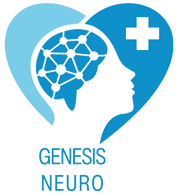We live in a world that’s going faster and faster with each passing minute. We have hectic lifestyles and busy days, affecting our emotional well-being. In order to live a balanced and fulfilling life, you have to control your emotions, understand them, and manage them in a way that doesn’t harm you. That is where a mood regulation therapist comes into play. If you’re in Boulder and you want to balance out your emotions, you need to look for mood regulation therapy in Boulder.
Understanding Your Mood
You already know that your emotions play a pivotal role in your life, guiding your everyday decisions, influencing your relationships, and affecting your overall well-being. But they can be complex, ranging from joy and excitement to sadness and anger, and you have to understand them if you want to regulate them. Each emotion is important for us as it serves a specific purpose: signaling us about our environment or helping us with an experience.
What you need to understand is that your mood can influence various factors, internal and external. When we talk about internal factors, we mean your thoughts, beliefs, and physical health. When we talk about external factors, we mean your environment, social interactions, and the various life events you go through. If you want to go for mood regulation therapy in Boulder, you have to recognize these influences and how they affect you.
Building Awareness & Mindfulness
Before we go into any tips and tricks, you first need to realize the two key components of mood regulation therapy in Boulder: self-awareness and mindfulness. Being mindful means being fully present at the moment, aware of your thoughts, feelings and other body sensations. This can help you recognize if strong emotions are at work and manage them proactively. If you want to develop mindfulness, a mood regulation therapist would suggest setting aside time each day to focus on your breathing or engaging in mindful meditation, among other things.
Another tool a mood regulation therapist could suggest is journaling, which could help increase your awareness. Regularly writing down your thoughts and feelings gives insight into your emotional patterns and triggers.
Practical Tools & Strategies from a Mood Regulation Therapist
Cognitive Restructuring
We all know how our thoughts affect our emotions and the intensity of the impact. If you have negative thought patterns, they can turn into negative emotions, which can affect your mood and well-being. One of the tricks a mood regulation therapist might use is cognitive restructuring to identify and challenge your negative thoughts. For example, instead of thinking, “I’ll never be good at this,” you could change it to, “I’m facing a challenge, but I can improve with practice and effort.”
Relaxation Techniques
Most of the time, when we think about mood regulation therapy in Boulder, the two main culprits are stress and anxiety. For this purpose, a mood regulation therapist could suggest relaxation techniques like deep breathing exercises, muscle relaxation, and visualization, among others. These techniques work by activating the body’s relaxation response, counteracting the stress response, and returning your body to a state of equilibrium.
Healthy Habits
Sometimes, all we need to focus on are our lifestyle choices like sleep, diet, and exercise to help regulate our mood. When you go for mood regulation therapy in Boulder, they might tell you about your lack of quality sleep and how it can exacerbate your mood swings and emotional reactivity. But if you have a balanced diet, regular physical activity, and get enough sleep, it’ll be good for your emotional and physical health. Simple changes, like incorporating more whole foods into your diet, establishing a regular sleep schedule, and finding an exercise routine that you enjoy, can have profound effects on your mood.
Neurofeedback Therapy
Now, let’s talk about a cutting-edge tool in the field of mood regulation therapy in Boulder: neurofeedback therapy. This is a non-invasive technology where a healthcare professional will monitor your brainwave activity and give you real-time feedback so you can learn to regulate your brain’s function. When you observe your own brain activity, you can learn how to adjust your emotional responses and achieve a balanced mood. Talk to a mood regulation therapist, and they’ll tell you that neurofeedback therapy has shown a lot of promise in treating a variety of mood-related issues.
Genesis Neuro: Regulate Your Mood to Achieve Success
Mastering your mood involves a combination of self-awareness, practical strategies, and, sometimes, professional support. By implementing the tips shared in this blog, you can be on your way toward regulating your emotions and cultivating a more fulfilling life. Remember, you have the power to manage your emotions and navigate the complexities of your mood.
Genesis Neuro is committed to empowering individuals with the knowledge, tools, and support to achieve optimal emotional well-being. Our team of experts specializes in a range of therapeutic approaches, including neurofeedback therapy, to provide personalized treatment.






